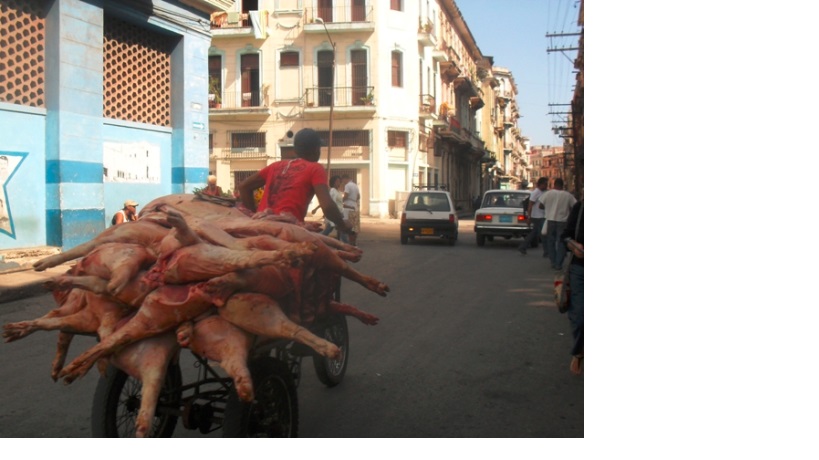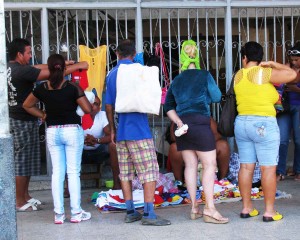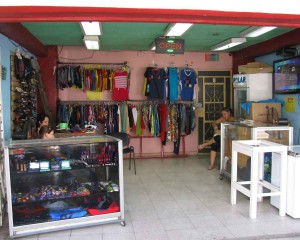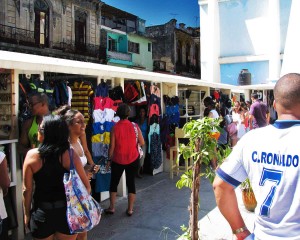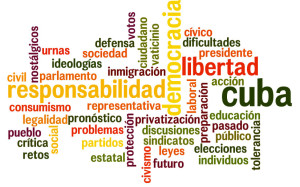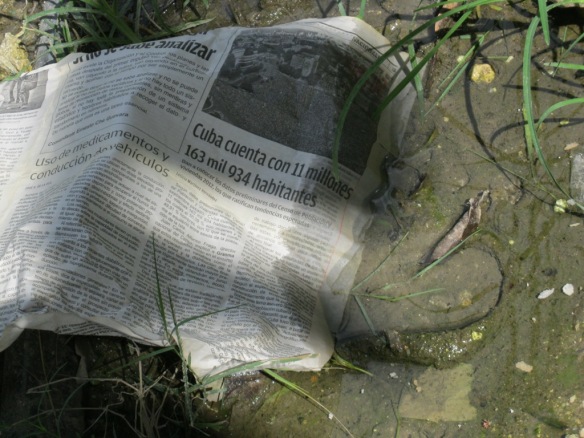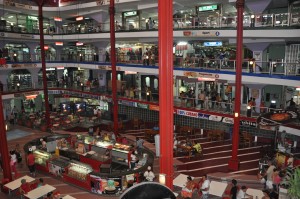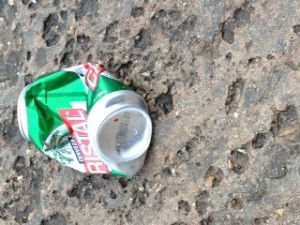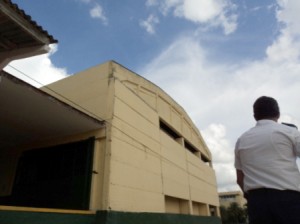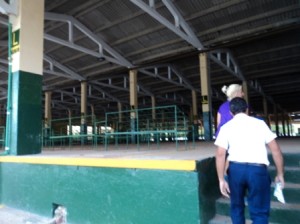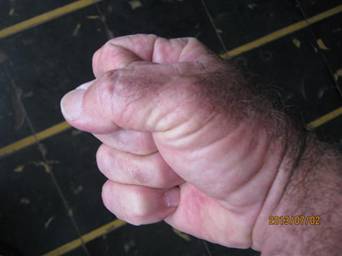Remarks of human rights advocate Rosa Maria Payá on why Cuba should not be elected to the UN Rights Council, delivered at UN headquarters on November 4, 2013, at a press conference organized by UN Watch and the Human Rights Foundation.
Transcript:
On September 20, the Cuban government declared, in the Human Rights Council, that they would not allow democracy in my country. They reject democratic values, and they pretend to redefine them with twisted principles, in order to remain in power forever.
The Cuban mission declined all recommendations to stop political apartheid, and to ensure fundamental freedoms, among many rights requested by the Cuban people from the government.
My father Oswaldo Payá is the founder of the Christian Liberation Movement [MCL]. He won the Sakharov Prize from the European Parliament, and he struggled peacefully for the recognition, in law and practice, of the right of all Cubans to have rights. He promoted a referendum known as the Varela Project, which has the support of more than 25,000 citizens, more than the number requested by our Constitution. Ten years later, the Cuban government still refuses to answer this citizen call for a plebiscite, violating its own Constitution.
My father died last year, and it is known that cars from the Cuban State Security were chasing him, and that his car was pushed out of the highway. World leaders have demanded an independent investigation after the contradictory version given by the Cuban government, whose UN mission refused to allow this investigation, as requested during the last UPR.
How come the Cuban government belongs to the Human Rights Council, when they systematically abuse those who demand real changes, when they do not allow any investigation of extrajudicial crimes in which they could be involved?
When they abolished university autonomy, religious freedoms, freedom of movement, association and publication, while they took control of all mass media, in a nation where the most part of the people do not know Internet because it is not a right?
When they don´t respect property rights, nor the right to a free economy, only to promote now a fake reform that doesn´t guarantee the rights of Cuban workers, nor even the rights of the foreign investors?
How come the Cuban government is in the Human Rights Council, when their leaders transfer power dynastically, when during the last 64 years there have never been free elections in Cuba, they have never been subject to an effective popular vote, thus being illegitimate to represent us?
When they mock of the international community as they present themselves as victims before UN, while they traffic tons of weapons and explosives in a civil ship, violating UN´s resolutions about North Korea, and endangering many lives?
When they are the same military that shot thousands of Cubans from the beginning of the Revolution, who promoted armed movements in Latin America, who sank at sea the tug-boat “13 de Marzo” loaded with women and children, who murdered four civil pilots of the “Brothers to the Rescue” organization in international water, who imprisoned and deported most of the Varela Project leaders, who mistreat the activists of the Ladies in White movement, who have been in prison the young Yosvani Melchor for over 3 years just for being the child of an active member of the MCL, who threatened to death my father, my family, the members of the Christian Liberation Movement and many other dissident leaders, who split apart most of the Cuban families with their intolerance?
How can they belong to the Human Rights Council, when it´s the Cuba government the one that kidnap our nation’s sovereignty?
The presence in the Human Rights Council of the Chinese, the Russian, the Saudi and the Cuban regimes, is disappointing for the victims of repression, and it sends a message of complicity from the international community. Cubans know that we are responsible to lead our country towards a democratic transition, but this is a time for solidarity, and democratic governments should not share seats with criminals, which behave with impunity, since they are not suffering any consequence for their violations.
These are defining moments for my nation. It’s time to pressure the Cuban government to behave democratically, or, in defect, not to elect Cuba for the Human Rights Council, in order to preserve the legitimacy of United Nations.
Against democracy there are many economic and political interests, including those who defend a supposed stability, over a real peace based on universal rights. It is difficult to ignore lobbies and the power behind lobbies. But, to defend the values for which it was created, the Human Rights Council has two choices: 1) to ignore that the sovereignty of the Cuban people is kidnapped; or 2) to defend the values that are the basis of United Nations, claiming respect for the democratic demands of all Cubans, therefore defending citizen rights in all nations.
God help us all.
Thank you very much.
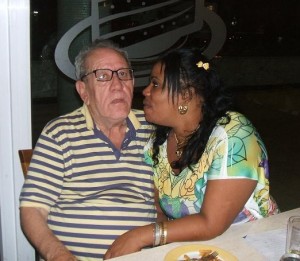 Havana, Cuba. November, www.cubanet/org — The prostitutes of Havana never inspire as much pity as when we see them accompanied by those mummies of European and US Stalinism who today constitute their VIP clientele. Really you have to have a heart of stone not only to go to bed with such a stinky and gassy old fogy but even to barely endure his proximity.
Havana, Cuba. November, www.cubanet/org — The prostitutes of Havana never inspire as much pity as when we see them accompanied by those mummies of European and US Stalinism who today constitute their VIP clientele. Really you have to have a heart of stone not only to go to bed with such a stinky and gassy old fogy but even to barely endure his proximity.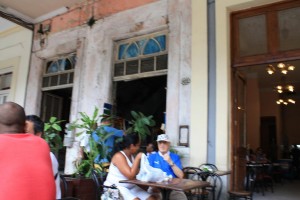 “What a waste, buddy,” exclaim the gentlemen from around here on seeing them bargaining, while the women whisper, teasingly, and the oldest ones are scandalized at “the turns life has taken here.” But they continue on their way, business as usual, confident, it seems, that they have left respectability in safekeeping, beyond the sea, along with their ancient wives.
“What a waste, buddy,” exclaim the gentlemen from around here on seeing them bargaining, while the women whisper, teasingly, and the oldest ones are scandalized at “the turns life has taken here.” But they continue on their way, business as usual, confident, it seems, that they have left respectability in safekeeping, beyond the sea, along with their ancient wives.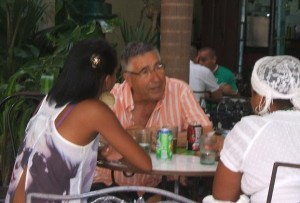 What a pity that there are no statistics that reflect how many casualties the worldwide revolution has suffered as a consequence of the heart attacks provoked by these encounters between the mummy veterans and our mud blossoms of the Fidelist legacy. In any case, they would say they’d died for socialism, if they managed to say anything, before shutting their trap, in the end, forever.
What a pity that there are no statistics that reflect how many casualties the worldwide revolution has suffered as a consequence of the heart attacks provoked by these encounters between the mummy veterans and our mud blossoms of the Fidelist legacy. In any case, they would say they’d died for socialism, if they managed to say anything, before shutting their trap, in the end, forever.
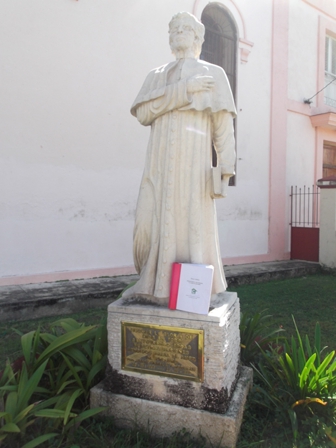 I remember every November 20th for a special reason (besides being the birthday of a dear aunt, and of a friend): on this day the Cuban nation gave birth to one of the preeminent pillars of our founding history, Father Felix Varela.
I remember every November 20th for a special reason (besides being the birthday of a dear aunt, and of a friend): on this day the Cuban nation gave birth to one of the preeminent pillars of our founding history, Father Felix Varela.